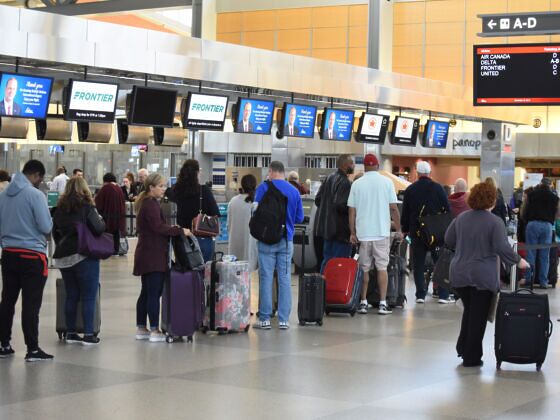If you’ve noticed that there seem to be fewer options to fly and the flights that are available cost more, that’s mainly due to a few key reasons. There are rising fuel prices and that the end of the latest major variant is spurring high travel demand. And then there are the staffing issues. For airlines, one particularly detrimental issue is the pilot staffing issue, and it doesn’t look like it’ll be resolved anytime soon.


Here's How Long the Pilot Shortage Could Impact Your Travel Plans
According to federal labor statistics, airlines would need to hire 14,500 pilots each year until 2030 to close the gap. The problem is the United States only produces 5,000 to 7,000 new pilots per year, according to United Airlines CEO Scott Kirby. That doesn’t account for the pilots leaving the industry voluntarily and pilots who legally must retire at age 65.
“The pilot shortage for the industry is real and most airlines are simply not going to be able to realize their capacity plan because there simply aren’t enough pilots, at least not for the next five plus years,” United Airlines CEO Scott Kirby said on a recent quarterly conference call. “The other really large airlines will also probably be able to attract enough pilots, but for anyone else, I just don’t think it’s mathematically possible to meet the pilot demand for the capacity plans that are out there.”
While this issue has been going on for a while, the pandemic exacerbated the problem when airlines were forced to lay off employees, with many workers accepting a contract buyout or retiring early. Some pilot unions have claimed that due to this shortage of pilots, pilots on staff are overworked and suffering from pilot fatigue.
Two years since the pandemic began, all major airlines are expecting fewer flights scheduled this quarter, according to Time. That’s down nine to 13 percent depending on the airline — meaning if there is a flight you’ve been eyeing for spring or summer travel, you might want to snatch it up quickly before its completely full. The pilot shortage isn’t going away anytime soon, so you might want to be prepared for the month ahead and, really, years to come.